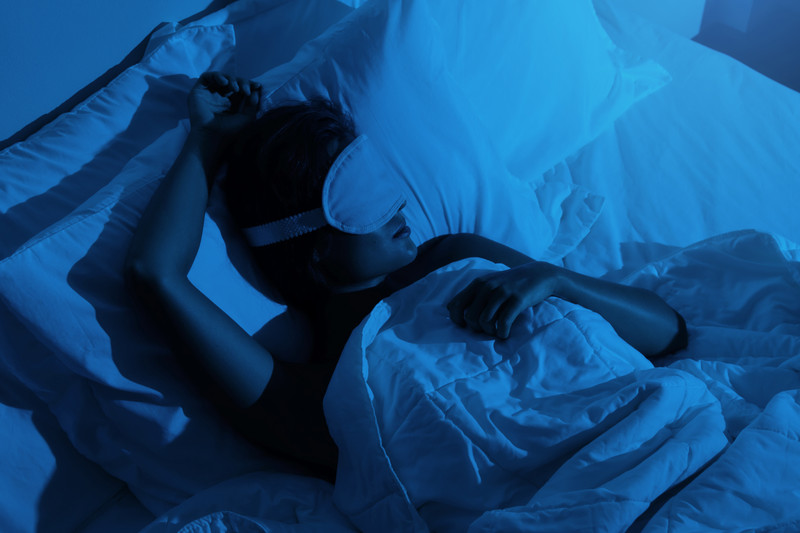Quality sleep is essential for overall health, yet many people struggle to get the rest they need. Whether it’s due to stress, screen time, or an inconsistent schedule, poor sleep can leave you feeling exhausted, irritable, and unfocused. The good news is that establishing a sleep-friendly nighttime routine can help regulate your body’s internal clock and promote restful, restorative sleep.
Why a Nighttime Routine Matters
Your body follows a circadian rhythm, an internal clock that regulates sleep-wake cycles. When you maintain a consistent routine, your body learns when to wind down, making it easier to fall asleep and wake up feeling refreshed. A well-structured nighttime routine can:
- Reduce stress and anxiety
- Improve sleep quality and duration
- Enhance cognitive function and memory
- Support overall well-being
Steps to Create a Sleep-Friendly Nighttime Routine
1. Set a Consistent Sleep Schedule
Going to bed and waking up at the same time each day—even on weekends—helps regulate your body’s internal clock. This consistency improves sleep quality over time.
- Tip: Aim for 7–9 hours of sleep per night and adjust your bedtime accordingly.
2. Limit Screen Time Before Bed
Exposure to blue light from phones, tablets, and computers suppresses melatonin, the hormone responsible for sleep. Reducing screen time in the evening helps signal to your brain that it’s time to rest.
- Tip: Turn off electronic devices at least 60 minutes before bedtime or use blue light filters.
3. Create a Relaxing Wind-Down Routine
Engaging in calming activities before bed helps transition your mind and body into a restful state.
- Try:
- Reading a book
- Listening to soothing music or white noise
- Practicing deep breathing or meditation
- Taking a warm bath with Epsom salts
4. Optimize Your Sleep Environment
Your bedroom should be a calm, comfortable, and distraction-free space.
- Tips for a better sleep environment:
- Keep the room cool (between 60-67°F).
- Use blackout curtains or a sleep mask to block light.
- Minimize noise with earplugs or a white noise machine.
- Invest in a comfortable mattress and pillows.
5. Limit Stimulants and Heavy Meals in the Evening
Caffeine, nicotine, and heavy meals can disrupt sleep by increasing alertness or causing discomfort.
- Tip: Avoid caffeine at least six hours before bed and opt for light, sleep-friendly snacks like almonds or herbal tea if you’re slightly hungry.
6. Incorporate Gentle Movement
Light stretching, yoga, or a short evening walk can help relax your muscles and prepare your body for rest. Avoid intense workouts too close to bedtime, as they may energize you instead.
7. Take Natural Sleep-Supporting Supplements
Certain natural supplements can help promote relaxation and improve sleep quality without the side effects of sleep aids.
Recommended Sleep Supplements
Melatonin
Melatonin is a hormone that helps regulate sleep cycles. Supplementing with melatonin can be helpful for individuals who struggle with falling asleep or those adjusting to a new time zone.
Sources: Natural production in the brain, melatonin-rich foods like tart cherries, and supplements.
Recommended: Melatonin 5MG by DC Labs
L-Theanine
L-Theanine is an amino acid that promotes relaxation and reduces anxiety, helping to ease the mind before bed.
Sources: Green tea, black tea, and supplements.
Recommended: L-Theanine by Pure Encapsulations
Valerian Root
Valerian root has been used for centuries to promote relaxation and improve sleep quality. It’s a natural sedative that helps calm the nervous system.
Sources: Herbal teas, extracts, and supplements.
Recommended: Formula 303 by DC Labs
8. Practice Mindfulness and Stress Reduction
If racing thoughts keep you awake, practicing mindfulness or journaling before bed can help you clear your mind.
- Try:
- Writing down worries or a to-do list for the next day
- Practicing guided meditation or progressive muscle relaxation
- Focusing on gratitude by listing three positive things from the day
9. Avoid Napping Late in the Day
While short power naps can be beneficial, sleeping too late in the afternoon can make it harder to fall asleep at night. If you need a nap, keep it under 30 minutes and avoid napping after 3 PM.
10. Track Your Sleep Patterns
Using a sleep journal or tracking app can help you identify patterns and make adjustments to improve your sleep quality over time.
A Note from Us
Creating a sleep-friendly nighttime routine doesn’t have to be complicated. By making small, consistent changes—such as reducing screen time, practicing relaxation techniques, and incorporating natural sleep-supporting supplements—you can improve both the quality and duration of your sleep.

